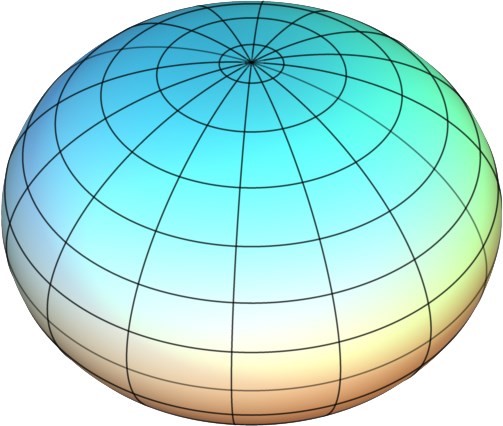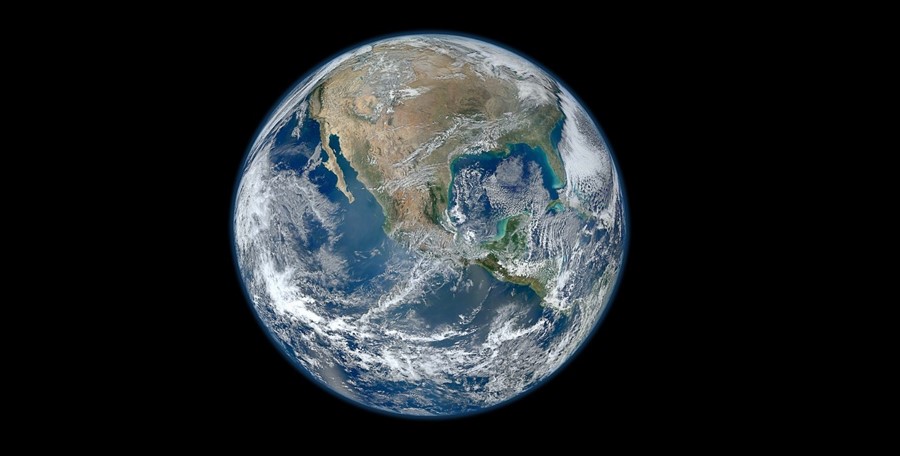As scientists consider dropping a second off their atomic clocks for the first time, others warn that it could cause widespread disruption
On a normal day, the Earth rotates at roughly 1,000 miles per hour, or 460 metres per second (as measured at the equator). On June 29, 2022, however, scientists measured the shortest day since records began in the 1960s – Earth had shaved 1.59 milliseconds off its usual time, and almost went on to do it again on July 26, when it knocked off 1.5 milliseconds.
Apparently, Earth has actually been speeding up for a few years now. In 2020, it set new records no less than 28 times, according to Time and Date, despite the last record being set all the way back in 2005. This trend looks set to continue in 2022, but scientists are yet to agree on why Earth’s spin is speeding up. Is it possessed with demonic energy? Thrown off-kilter by the Large Hadron Collider? Quickened by the climate crisis? (Disclaimer: only one of these theories has any real scientific support.)
A more important question for us, perhaps, is whether it even matters that we’re spinning milliseconds faster as we float through space. How will it affect our daily lives if we continue to accelerate? Will we be liquefied by centrifugal force? Probably not, but it could have some unexpected side effects, from time keeping inconveniences, to Year 2000-style bugs in the systems that keep society afloat.
Below, we explore some theories about the reasons behind the acceleration of Earth, and dive deeper into the effects it’s likely to have in the near future.
THE ‘CHANDLER WOBBLE’
One possible explanation for Earth’s recent acceleration is a deviation in the planet’s axis that was first discovered all the way back in 1891. Named the “Chandler Wobble” – after the astronomer Seth Carlo Chandler – this basically revolves around the fact that the Earth’s poles shift by a few metres over the course of 433 days.
From 2017 to 2020, though, Earth wobbled significantly less, a shift that coincides with the date that days began to get shorter. Some scientists have suggested that the disappearance of the Chandler Wobble is linked to the speeding up of Earth’s rotation, although others have dismissed the theory – the jury’s still out.
THE CLIMATE CRISIS
The speed at which the Earth spins is affected by all of its distinct parts, including its inner and outer layers, tides, ocean levels, and climate. One hypothesis for the recent acceleration stems from the fact that some of these parts are changing rapidly due to the climate crisis.
As the ice caps melt at each of Earth’s poles, they exert less pressure on the top and bottom of the planet. This apparently changes the overall shape of the Earth’s crust from an oblate spheroid (a slightly squashed sphere), to something closer to a properly round sphere. Because the mass of Earth would then be closer to its centre, its rotational speed would increase – just like, if you’re spinning on a chair, holding your arms out will slow you down and tucking them in will speed you up.
WHAT ARE WE GOING TO DO?
A few milliseconds may not sound like much, but it all builds up. In 2016, for example, a study led by Royal Observatory Greenwich astronomers revealed that Earth’s rotation has changed (actually, slowed) by around six hours in the last 2,740 years. To keep up with this fluctuation, scientists often find themselves having to adjust their atomic clocks.
In fact, timekeepers have reportedly added 27 “leap-seconds” since 1972, to account for the long-term slowing of Earth’s spin (thanks to the Moon) and to keep the digital world in sync with the actual length of Earth’s days. Now that Earth is speeding up after decades of slowing down, though, they’re faced with the puzzling prospect of having to take away (or “drop”) a second from global time.

LEAP SECONDS HAVE KNOCK-ON EFFECTS
Because our technological infrastructure is so dependent on a universally agreed-upon time, leap-seconds have often caused disruption to companies, technologies, and whole industries that rely on regular, and incredibly precise, timekeeping.
Meta, Microsoft, Google, and Amazon – backed by French and US timekeepers – even collectively launched a public effort to scrap the leap-second completely in 2022, claiming that the practice causes more problems than it’s worth. See: the massive Reddit outage in 2012, and the massive Cloudflare glitch in 2017.
“Leap second events have caused issues across the industry and continue to present many risks,” say Meta’s Oleg Obleukhov and Ahmad Byagowi in a July 25 blog post. “As an industry, we bump into problems whenever a leap second is introduced. And because it’s such a rare event, it devastates the community every time it happens.”
“The impact of a negative leap second has never been tested on a large scale” – Oleg Obleukhov and Ahmad Byagowi
WHAT WILL HAPPEN IF WE DROP A SECOND?
Timekeepers have never actually been forced to reckon with Earth speeding up before, and responding to this rare situation with a “drop-second” would be a world first. Needless to say, this opens up a whole new realm of possibilities for causing the kind of disruption typically caused by leap-seconds.
In reality, no one really seems to know what the extent or nature of the damage would be if timekeepers took a second away for the first time. “The impact of a negative leap second has never been tested on a large scale,” say Obleukhov and Byagowi. “It could have a devastating effect on the software relying on timers or schedulers.”
What does this mean for us, if Earth’s rotation does keep accelerating? It’s hard to say. Maybe our desire to keep up will usher in a wave of chaos across the tech industry, and spin us back to the technological Dark Ages. Maybe we’ll find a new way to make up the difference. More likely, we’ll lose access to Reddit for a couple of hours and then everything will go on as normal, because all time is basically made up anyway.




